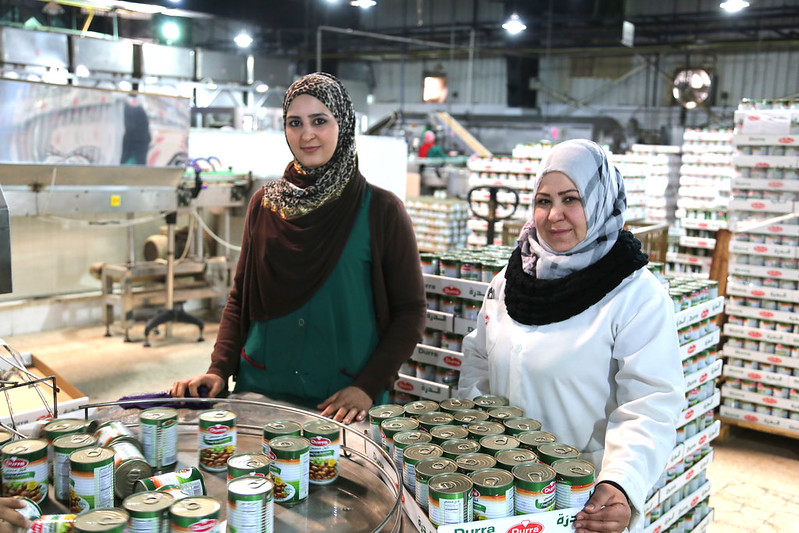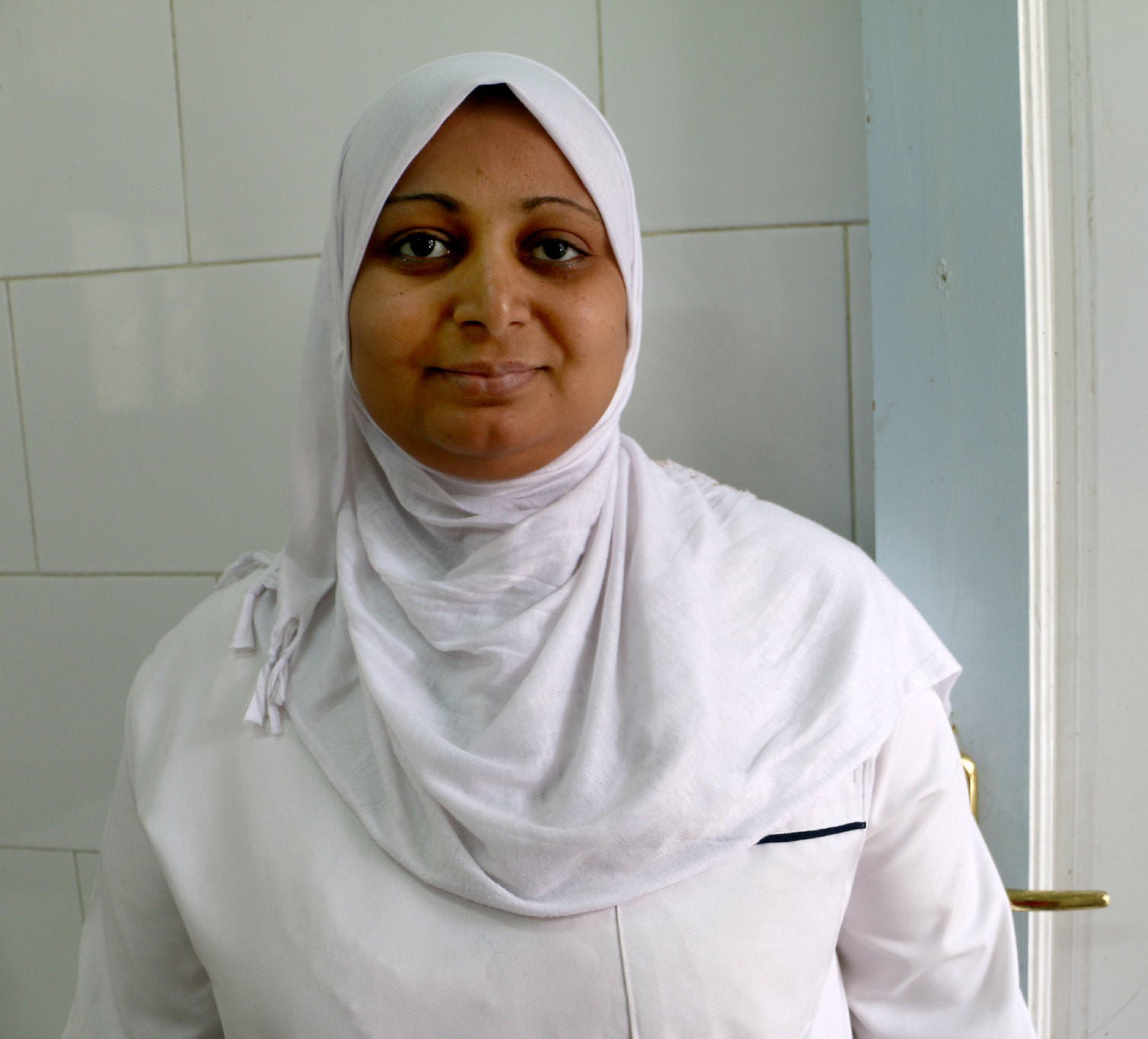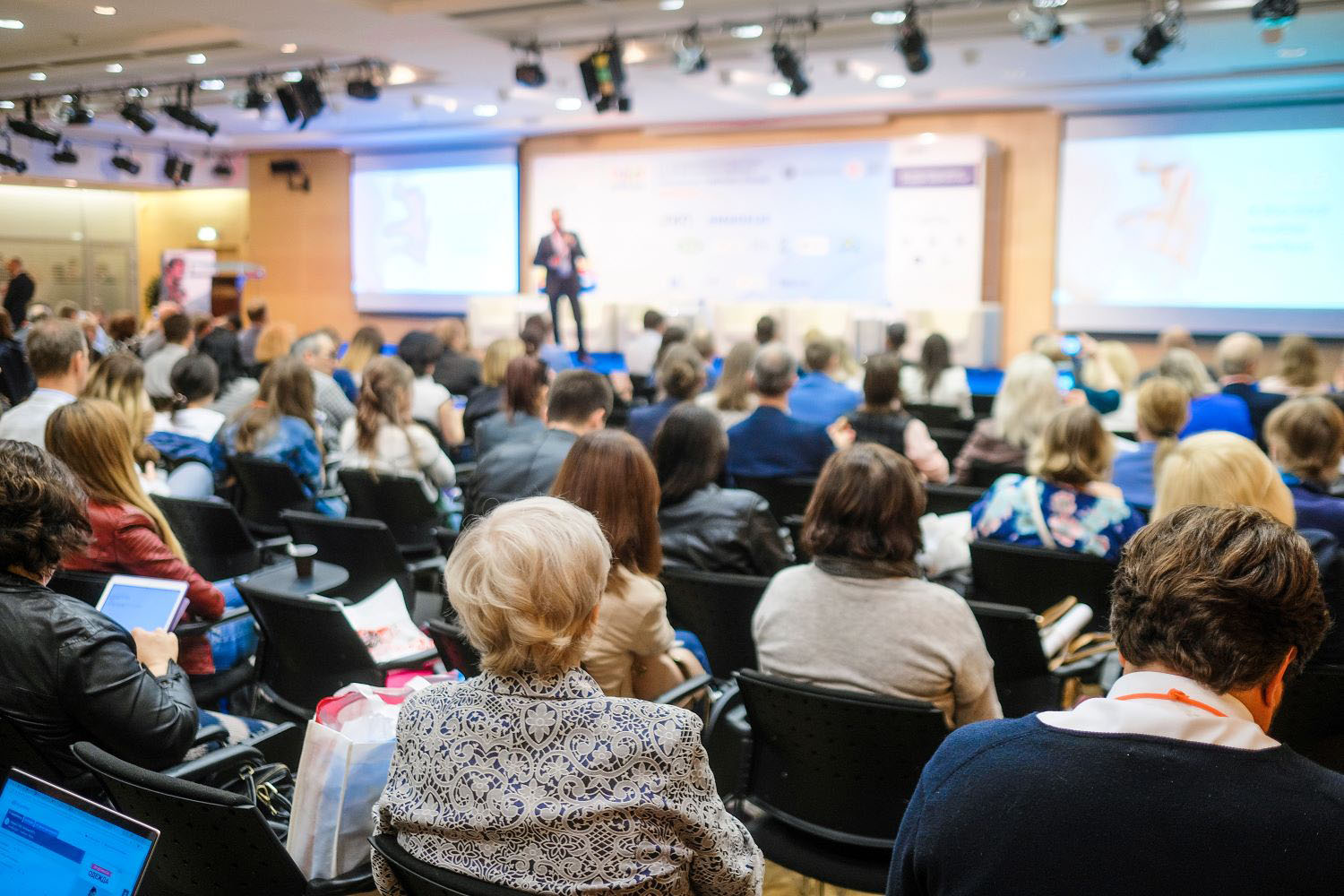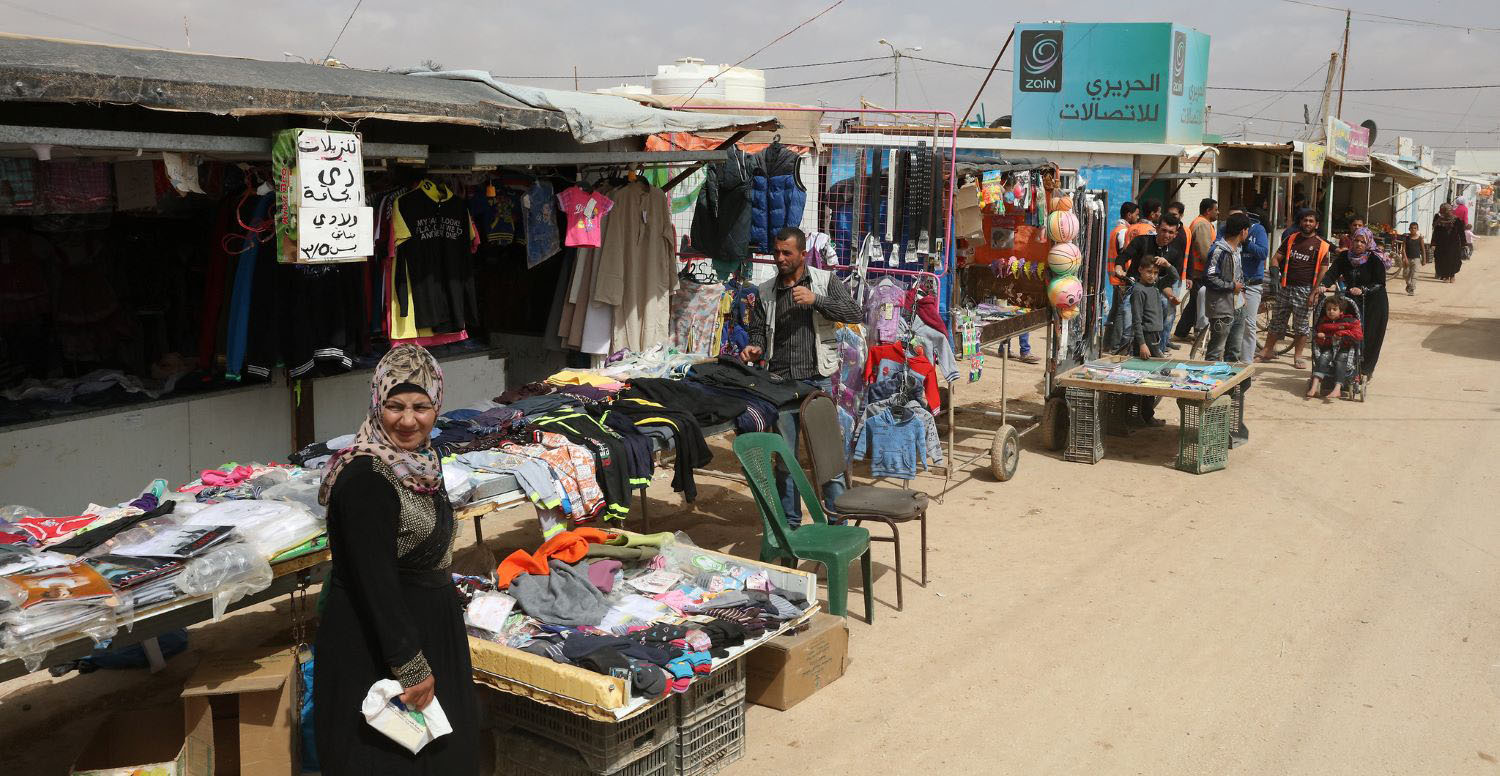Recommended
Despite the long list of outstanding challenges related to forced displacement, substantial progress has been made over the past few years. On World Refugee Day this year, we are excited to note recent successes—in particular, the expansion of formal labor market access (FLMA) for refugees.
In general, low- and middle-income countries (LMICs) severely restrict refugees’ access to labor markets. But now, in countries such as Colombia, Ethiopia, Jordan, and Turkey, refugees are slowly gaining the formal right and opportunity to facilitate their own economic inclusion. Governments are granting these rights in part because they recognize the benefits of doing so, which include unlocking refugees’ economic contributions and attracting new investments in inclusive growth. They also recognize the limits of short-term humanitarian aid in the face of growing need and donor fatigue. The World Bank, UNHCR, ILO, Tent Partnership for Refugees, Refugee Self-Reliance Initiative, and many others have supported these efforts and continue to play a crucial role in sustaining forward momentum.
Despite advances, the vast majority of refugees in LMICs are still not formally allowed to work. As we showed recently, this restriction creates a wide range of costs and forgone benefits, including lower economic productivity for the host country, forgone tax revenues, and lower incomes and living standards for the refugees themselves.
To build on the progress to date, CGD and Refugees International (RI) are embarking on a joint initiative funded by the IKEA Foundation, Tent Partnership for Refugees, and Western Union Foundation to:
- generate evidence on the economic, social, and protection effects of increasing FLMA;
- develop recommendations to maximize its benefits, particularly for women and vulnerable populations, and mitigate challenges for both refugees and host communities; and
- support efforts to mobilize the private sector to make the business case. Because of their unique role as market leaders and drivers of trade, investment, and innovation, businesses have an important (and currently underutilized) role in shaping policy and dialogue on FLMA.
Progress to date
Since 2016, there has been significant progress in expanding FLMA for refugees, thanks to a combination of 1) new international agreements and initiatives, 2) leadership amongst host countries, and 3) private sector engagement.
On the first, stakeholders in recent years have endorsed and supported the Global Compact on Refugees, New York Declaration for Migrants and Refugees, the Comprehensive Refugee Response Framework, the World Bank Global Concessional Financing Facility, and IDA18 refugee sub-window, and the ILO Recommendation No. 205 on Employment and Decent Work for Peace and Resilience. They all promote the expansion of livelihood opportunities—a core component of FLMA.
On the second:
- In Colombia, over 500,000 refugees have been given residency and work permits.
- Earlier this year, Ethiopia passed a law that will allow refugees to obtain work permits, access public education, and obtain drivers’ licenses.
- In Jordan (thanks to the Compact, discussed in a CGD-International Rescue Committee report), over 140,000 formal work permits have been issued, about half of which are active. The government has also passed a law allowing Syrian refugees to register home-based businesses.
- In Turkey, about 28,000 refugees have received work permits, over 7,000 formally registered companies have been founded by Syrians, and many Syrians are eligible for state-run apprenticeship programs that subsidize refugee employment.
- In Uganda, refugees have full work rights and have made some progress toward economic inclusion.
On the third, the private sector has also begun playing a larger role. Building on President Obama’s 2016 Call to Action for the private sector to make commitments to support refugees, and with the support of the Tent Partnership, a growing number of companies have made concrete efforts to address the refugee crisis and search for sustainable solutions. An important shift has been for companies to engage through their core business—for example, by hiring and investing in refugees, rather than through corporate social responsibility initiatives alone. The private sector has also played an important role by supporting refugee entrepreneurs and businesses.
Remaining challenges
However, room for progress remains. A recent CGD-IRC policy brief and several RI reports (see here and here) discuss the successes and remaining challenges at the country level.
- In Colombia, many refugees remain without work rights.
- The new laws in Ethiopia are still in early stages of implementation.
- In Jordan and Turkey, certain sectors remain closed to refugees, permits are typically tied to employers, and legal work is still out of reach for many.
- De facto economic inclusion is still lacking in Uganda.
In these countries, it is common for refugees to lose certain benefits (such as access to humanitarian assistance) if they obtain formal work or leave certain areas. And many other LMIC countries restrict FLMA for refugees more or less altogether. Both CGD and RI have reviewed how to make progress on these issues, including for Bangladesh and for countries hosting Venezuelan refugees and migrants. We have found that support from the international community—through compact models, financing, and diplomacy—can facilitate refugee economic inclusion in a way that generates benefits for hosts and refugees and provides protection.
The private sector has an important role
Any progress will require both inclusive growth and building bridges between humanitarian and development actors. Here, the private sector can play a key role by making investments and commitments that promote growth and development in refugee-hosting communities. But in order for the private sector to leverage investment opportunities, there must be an enabling legal environment that includes FLMA. Businesses are therefore well-positioned to advocate for changes, but until now, they have been largely absent from policy dialogue.
Why would businesses want expanded FLMA? In some cases, to leverage the economic contribution of refugee workers and ensure they comply with local regulations. The progress made in Turkey provides a powerful example of this. Early in the Syria crisis, several international garment retailers started receiving reports of refugees working informally in their suppliers’ factories in Turkey. The companies were concerned with their reputations and maintaining ethical and legal practices, but in the absence of FLMA, were left with a difficult choice—fire refugees in need of work or continue their employment illegally. In partnership with The Fair Labor Association (FLA) and the Ethical Trading Initiative (ETI), a coalition of companies sent a letter to the Ministry of Labor highlighting this challenge. Shortly thereafter, Syrian refugees were granted the right to seek work permits. Though access to formal employment remains a challenge for most refugees, including those who are from countries other than Syria, the policy change was an important step forward and it has paved the way for improving refugees’ economic inclusion in Turkey.
In other cases, companies may want to expand their pool of potential employees, and thus become more productive. A recent report from Building Markets on small and medium-sized enterprises in Jordan illustrates this. The report showcases dozens of companies across a variety of industries that employ substantial numbers of refugees and rely on refugee labor to thrive. In countries without FLMA, businesses would not be able to take advantage of these opportunities.
And finally, the formalization of refugees’ access to the labor market leads to higher incomes, which in turn leads to greater consumer spending and thus benefits local businesses.
Introducing a new initiative to expand FLMA
We believe that greater progress on refugee FLMA is possible with research on its economic, social, and protection effects, as well as increased engagement by the private sector. To this end, our new initiative will focus on generating and synthesizing evidence on FLMA and translate that evidence in ways that help companies and other advocates push for expanded access.
Our new initiative has three pillars:
- Global research. The work under this pillar will provide evidence at a global level that addresses key concerns of policymakers. It will address the costs, benefits, and effects of granting FLMA; the policy solutions that would make FLMA work well for both hosts and refugees; and the barriers that prevent governments from extending FLMA. We intend to support implementation of the Global Compact on Refugees by contributing key questions to the research agenda, convening experts, and generating rigorous research.
- Country-level analysis. The work under this pillar will address similar questions to the above, but for a set of focus countries where promising in-roads have been identified. Both research pillars will build on CGD’s expertise in conducting economic research and RI’s expertise in refugee protection and on-the-ground evidence gathering. We will develop country case studies and recommendations to create mutual benefits from FLMA.
- Mobilizing towards policy change. To complement the research, CGD and RI will also conduct outreach to disseminate the findings and contribute to ongoing policy dialogues. We will engage with to a wide range of stakeholders, including host governments, donor countries, international organizations, business associations, NGOs, and civil society. We will also work with partners, such as the Tent Partnership for Refugees, who will engage directly with individual businesses. Many organizations are already engaged in this work. The aim of this initiative is to provide them with even more evidence and tools to advance policy progress and support the increased involvement of the private sector.
We are excited about this new initiative, and hope that by bringing more evidence and private sector engagement to policy dialogues, we can help build on existing momentum and make even more progress towards FLMA for refugees.
To find out more about the initiative, please contact Jimmy Graham at jgraham@cgdev.org.
Disclaimer
CGD blog posts reflect the views of the authors, drawing on prior research and experience in their areas of expertise. CGD is a nonpartisan, independent organization and does not take institutional positions.
Image credit for social media/web: Russell Watkins/DFID/Flickr







